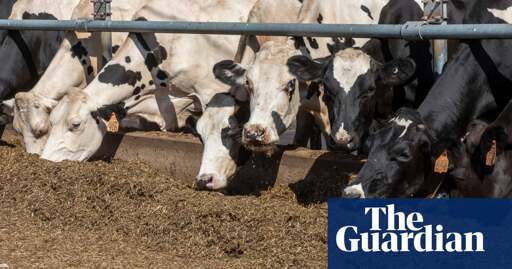Summary
A new H5N1 bird flu variant has become “endemic in cows,” with cases detected in Nevada and Arizona, raising concerns about human transmission.
Experts warn that without intervention, the outbreak will continue, but Trump has cut CDC staff and halted flu vaccination campaigns.
The virus’s spread coincides with a severe flu season, increasing the risk of mutation.
The administration has also stopped sharing flu data with the WHO and shifted its containment strategy away from culling infected poultry, raising fears of inadequate response.



My point is, you try to… I try to also, but in the dead of winter there’s no a local fruit and veggies. I’m also not vegan/vegetarian, I eat meat. Fish, and chicken primarily but I don’t raise either, so I have to rely on someone else to do that for me.
We do actually get probably half our eggs from someone at my wife’s work, and some. fruits and vegetables at the farmers market down the street in the summer. But they’re closed now and have been most of winter.
It’s harder than just saying “just stop” was my point. I’d love to be part of the solution where I can but there’s zero chance of me not eating meat if it’s available.
It’s worth noting that environmentally, where the food comes from matters far far less than what you eat. Production emissions are far larger than any transportation emissions
https://ourworldindata.org/food-choice-vs-eating-local